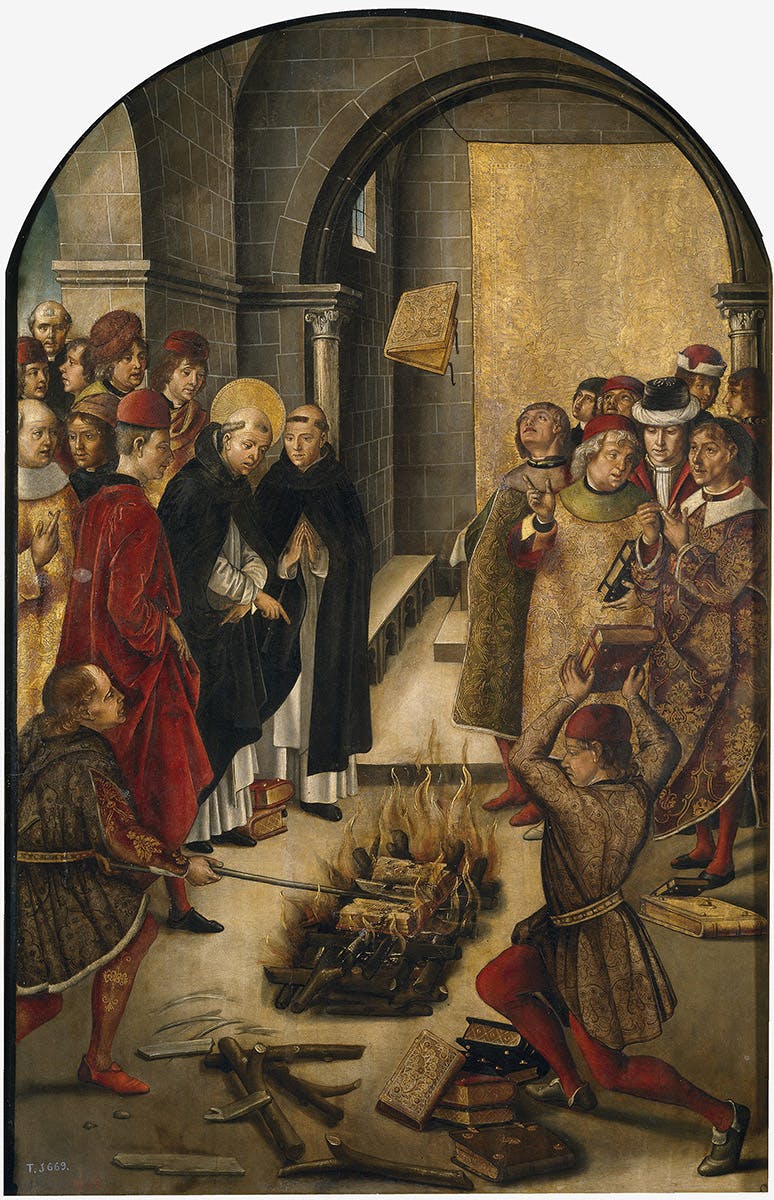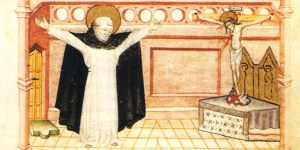Componentity
Just Copy & Paste
St. Dominic encountered tormented souls; his life and Order were his response
Passing through the South of France, around 1206 or so, Dominic de Guzman encountered a sect of Christians who had revived a form of dualism. Manichaeism, a dualism to which Augustine of Hippo fell prey, claims that the created world is not good. Rather, the things of the world, even one’s own flesh, are evil.
Offering a ready answer to the problem of evil, this way of thinking explains away the contest of suffering in this life, without nuance or hesitation. According to this Manichaeism, God doesn’t allow or cause or permit or have anything at all to do with the sorrows of this world. He is, Manichaeans say, not responsible for it.
Dominic and the Albigensians
The Albigensians, the revivers of this Manichaean thinking who Dominic met on his travels, captured the heart of this man. Rather than dismissing them or waving off their concerns as insignificant, Dominic spent himself in their service. From that moment on, he gave himself to the project of preaching, wanting to win back these tormented souls. To bring them to something more. To lead them to Christ.
To undertake this work though, Dominic did not merely pray, engage in public disputation, recruit capable assistants, witness evangelical poverty—although he did all of those things. He embraced a mode of living, a way of life yet unseen. Throwing himself totally into his project, he gave himself again completely to God.
There is an old joke referring to Saint Dominic and the success of his Order. Its various tellings go something like this: “Which religious order is more successful, the Dominicans or the Jesuits? Well, seeing as the Jesuits were founded to combat Protestantism, and the Dominicans Albigensianism, when was the last time you met an Albigensian?” One could easily believe Dominican’s project arcane, since his followers accomplished, more or less, what he set out to do.
But that would be a mistake.
Such a reading of the history of Dominic misunderstands who he was and misinterprets his project. As the Dominican Order celebrates the 800th anniversary of his death, his dies natalis, it is worth the time to take a closer look at Dominic, to consider again the shape of his life and discover once more the particular quality of his holiness.
A hidden sort of saint
We must acknowledge at the outset of any attempts to speak about Saint Dominic a certain pause. We are limited in our abilities to investigate his life as such. Unlike Augustine of Hippo, Dominic did not write an autobiography. Unlike Francis de Sales, we lack a magnum opus of his spiritual doctrine. Dominic is hidden, allowing us to know him chiefly by means of the testimony of his friends and the way of life he offered the Church.
Dominic’s friends speak of his compassion
Much of our biographical information about Dominic comes down to us from the records of the proceedings of his canonization. It is in these accounts—a crucial part of the investigation into his life—that his many secret good deeds were brought to light. The brethren spoke of his nightly prayer vigils. One hostess speaks of his simple appetite and reveals that he slept on the floor, a fact she deduced from the untouched bed. Another brother testifies to his copious tears as he reverently celebrated Mass. At the end of his life Dominic told the brethren he wished to be buried under their feet … such was his humility!
These and many more deeds reveal to us the heart of Saint Dominic. Father Peter John Cameron, OP, writes,
All of Saint Dominic’s biographers stress his acute compassion for and attention to the afflicted and those in need: the starving people he sold his books for; the enslaved captives he was willing to ransom himself for; the sinners he spent sleepless nights praying for and weeping over.
So great was Dominic’s charity that his successor in the leadership of the Order, Jordan of Saxony, described him saying, “His heart was filled with an admirable and almost incredible desire for the salvation of all people.” Dominic, who famously spent an entire night speaking with an innkeeper to reconcile the man to the Church, wanted nothing more than for the world to know the Gospel of Jesus.
A new way of religious life
After his personal holiness, the greatest thing Dominic offered the Church was a new form of religious life. Determined to meet the needs of his day, Dominic began his Order of Preachers to combat the errors drawing people away from faith. His learned disciples were trained to preach Saving Truth. They would be dedicated to study. Fearlessly they would travel from place to place, imitating the Lord and his apostles.
But their life was not only words. It was not mere performative witness. These men were to embrace poverty; to live in community; to chant the Divine Office; to spread devotion to Our Lady … the entire way of life was something new in an age that knew only monks and parish priests.
His forma vitae, his way of life, offers us untold hope today. After all, our world is not so different from Dominic’s. In an age that contests what is true, what is just, what is beautiful … Dominic’s way proposes a path of encounter; a path of salvation.
Dominic was a true light for the Church. The current Master of the Order, Gerard Timoner III, OP, writes,
Saint Dominic is lumen ecclesiae because his entire life was oriented towards Christ, lumen gentium. As light, Dominic is like the moon rather than the sun. Jesus is the only true light of the world, and just like all of us who are baptized in Christ, Dominic merely reflects the light of Christ.
Recognizing that his role was to reflect the light, Saint Dominic was said to speak only to God or of God. May we, like Dominic, propose the light of Truth to bring peace to the darkest hearts.
DominicansSaints

